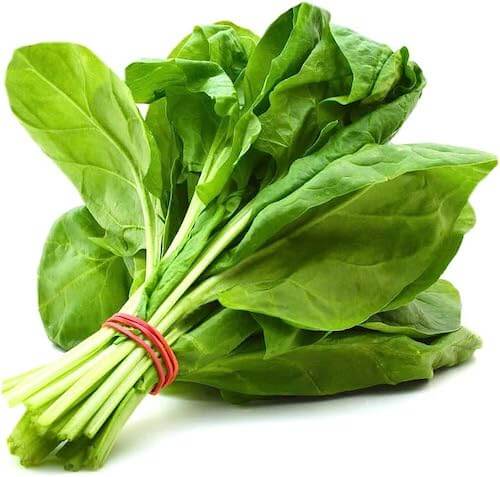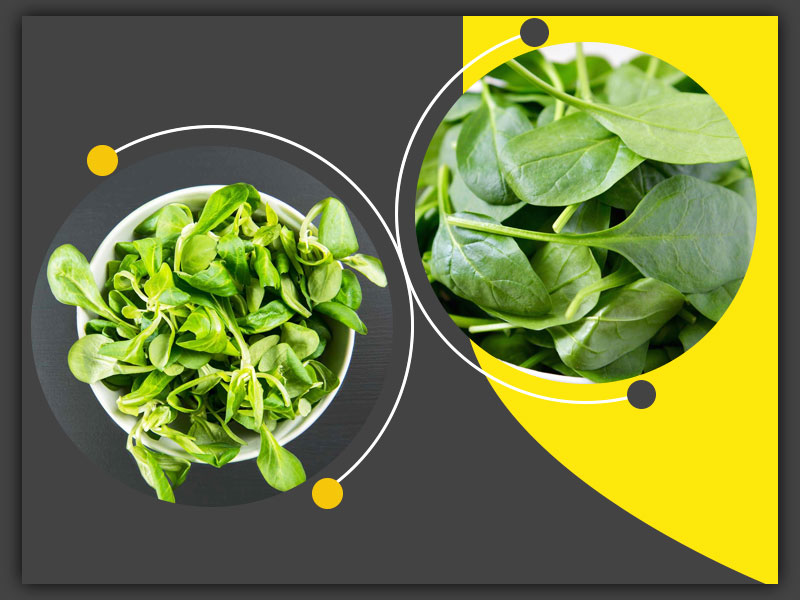
When it comes to nutritious leafy greens, two contenders often come to mind spinach vs. fenugreek. Both are celebrated for their health benefits and culinary versatility, but how do they compare? This article delves into the nutritional profiles, health benefits, culinary uses, and potential drawbacks of spinach and fenugreek, ultimately helping you decide which might be better for your health.
Table of Contents
Spinach: Nutritional Highlights
Spinach is often hailed as a superfood due to its rich nutrient density. Key highlights include:
- Vitamins and Minerals: Spinach is a powerhouse of vitamins A, C, and K. Vitamin K is particularly important for bone health and blood clotting.
- Antioxidants: Contains antioxidants like lutein and zeaxanthin, which promote eye health and reduce oxidative stress.
- Low in Calories: With only 23 calories per 100 grams, spinach is an excellent choice for weight management.
Fenugreek: Nutritional Highlights
Fenugreek, while less commonly consumed as a vegetable, boasts its own impressive nutritional profile:
- High in Fiber: Fenugreek is exceptionally high in dietary fiber, aiding digestion and promoting a feeling of fullness.
- Rich in Vitamins and Minerals: Fenugreek is an excellent source of vitamins A and K, as well as several B vitamins.
- Protein Source: Contains more protein than spinach, making it a valuable addition for vegetarians and vegans.
Nutritional Profiles Spinach vs. Fenugreek
To understand the health benefits of spinach and fenugreek, we first need to explore their nutritional profiles. Below is a comparison table highlighting key nutrients in both:
| Nutrient | Spinach (100g) | Fenugreek (100g) |
|---|---|---|
| Calories | 23 | 49 |
| Protein | 2.9 g | 4.4 g |
| Fat | 0.4 g | 1.2 g |
| Carbohydrates | 3.6 g | 6.0 g |
| Dietary Fiber | 2.2 g | 25.0 g |
| Vitamin A | 469 µg (52% DV) | 1,500 µg (166% DV) |
| Vitamin C | 28.1 mg (31% DV) | 5 mg (6% DV) |
| Vitamin K | 482.9 µg (402% DV) | 24.8 µg (21% DV) |
| Calcium | 99 mg (10% DV) | 57 mg (6% DV) |
| Iron | 2.7 mg (15% DV) | 1.0 mg (6% DV) |
| Magnesium | 79 mg (19% DV) | 54 mg (14% DV) |
*DV = Daily Value
Health Benefits
Both spinach and fenugreek offer a range of health benefits, but they each have unique properties that cater to different health needs.
Benefits of Spinach

- Heart Health: Spinach is rich in potassium and nitrates, which can help lower blood pressure and improve heart health.
- Bone Health: The high vitamin K content in spinach is crucial for maintaining strong bones and preventing fractures.
- Eye Health: Antioxidants in spinach, particularly lutein and zeaxanthin, can help reduce the risk of cataracts and macular degeneration.
- Weight Management: Low in calories and high in water content, spinach can be a valuable ally in weight loss diets.
- Anti-Inflammatory Properties: Spinach contains various anti-inflammatory compounds that may help reduce the risk of chronic diseases.
Benefits of Fenugreek

- Digestive Health: The high fiber content in fenugreek aids digestion and can prevent constipation.
- Blood Sugar Regulation: Fenugreek has been shown to lower blood sugar levels and improve insulin sensitivity, making it beneficial for diabetics.
- Hormonal Balance: Fenugreek may help balance hormones and alleviate symptoms of menopause, such as hot flashes.
- Lactation Support: Fenugreek is often used by breastfeeding mothers to enhance milk production.
- Cholesterol Management: Studies suggest that fenugreek can help lower total cholesterol levels and improve heart health.
Culinary Uses
Spinach

Spinach is incredibly versatile in the kitchen. It can be eaten raw in salads, cooked in dishes like stir-fries, soups, and pastas, or blended into smoothies. Here are some popular culinary applications:
- Salads: Fresh spinach leaves can be tossed with various toppings, such as nuts, fruits, and vinaigrettes.
- Sautéed: Quickly sautéing spinach with garlic and olive oil creates a delicious side dish.
- Smoothies: Spinach can be blended into smoothies for added nutrition without altering the taste significantly.
- Soups and Stews: Adding spinach to soups or stews boosts the nutrient content while adding a vibrant green color.
Fenugreek

Fenugreek is commonly used in Indian and Middle Eastern cuisines, often as seeds or leaves. Its unique flavor enhances a variety of dishes:
- Curries: Fenugreek leaves (known as “methi”) are often included in Indian curries for their distinct taste.
- Spice Blends: Fenugreek seeds are ground into powder and added to spice mixes, like garam masala.
- Breads: Fenugreek leaves can be mixed into dough for flatbreads, providing both flavor and nutrition.
- Teas: Fenugreek seeds can be steeped in hot water to make a health-promoting tea.
Potential Drawbacks
While both spinach and fenugreek have numerous health benefits, they are not without potential drawbacks.
Spinach
- Oxalates: Spinach contains oxalates, which can bind to calcium and reduce its absorption. Individuals prone to kidney stones should consume spinach in moderation.
- Pesticides: Spinach is often on the list of produce with high pesticide residues. Washing thoroughly or buying organic can help mitigate this risk.
Fenugreek
- Allergic Reactions: Some individuals may experience allergic reactions to fenugreek, particularly those with a history of legume allergies.
- Blood Sugar Levels: While beneficial for diabetics, fenugreek can lower blood sugar too much if consumed in large quantities. Monitoring blood sugar levels is essential for those on medication.
Conclusion: Which is Better for Health Spinach vs. Fenugreek?
Choosing Spinach vs. Fenugreek ultimately depends on your health goals, dietary preferences, and culinary needs.
- Choose Spinach If: You’re looking for a low-calorie, nutrient-dense vegetable rich in vitamins A, C, and K. It’s perfect for weight management and offers significant benefits for eye and bone health.
- Choose Fenugreek If: You seek digestive support, blood sugar regulation, or hormone balance. Fenugreek’s high fiber content makes it ideal for promoting satiety and aiding digestion.
Both spinach and fenugreek can be incorporated into a healthy diet, and consuming a variety of leafy greens is generally the best approach for optimal health. Consider your individual health needs and preferences, and enjoy the unique flavors and benefits each has to offer.

